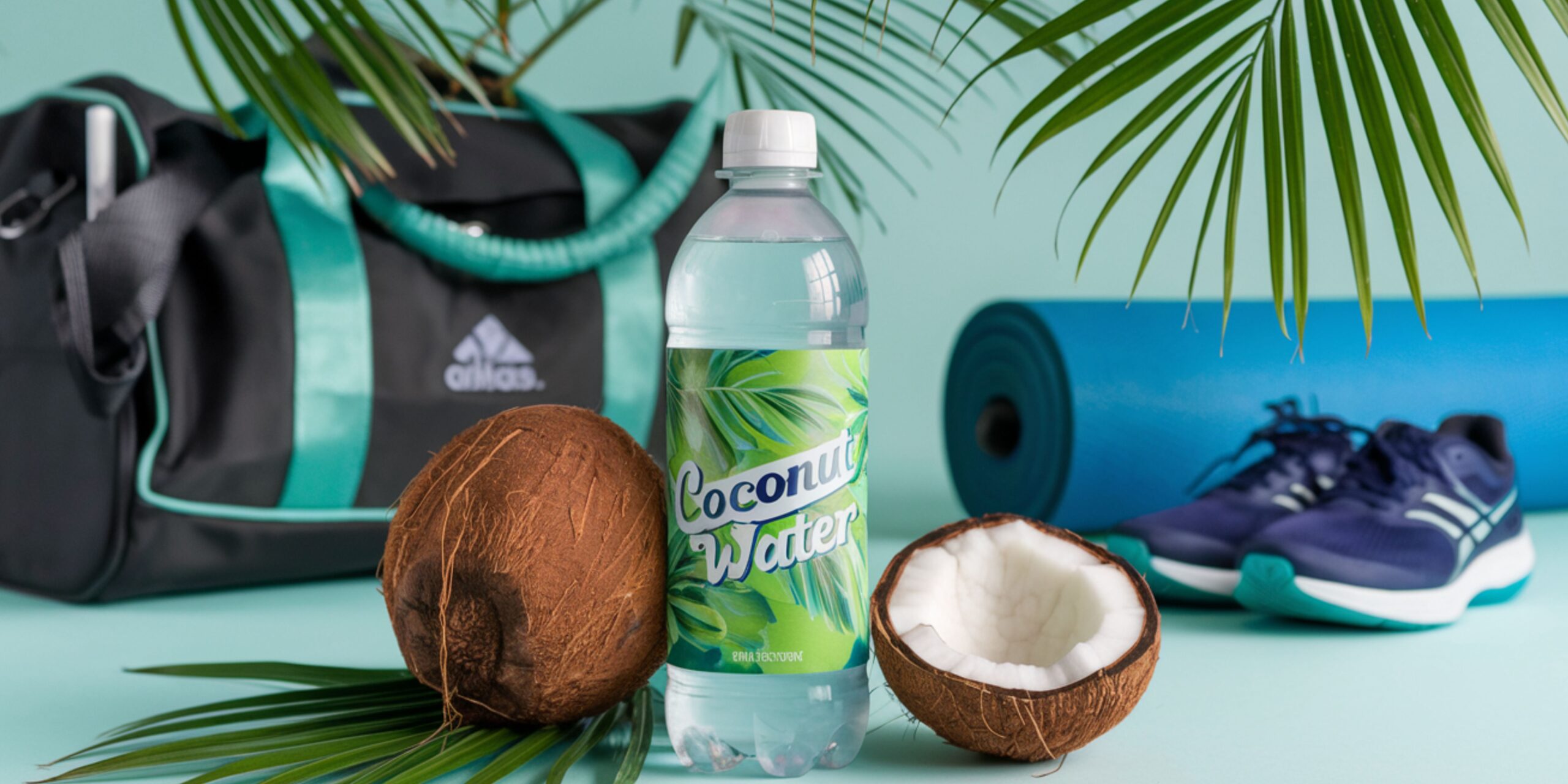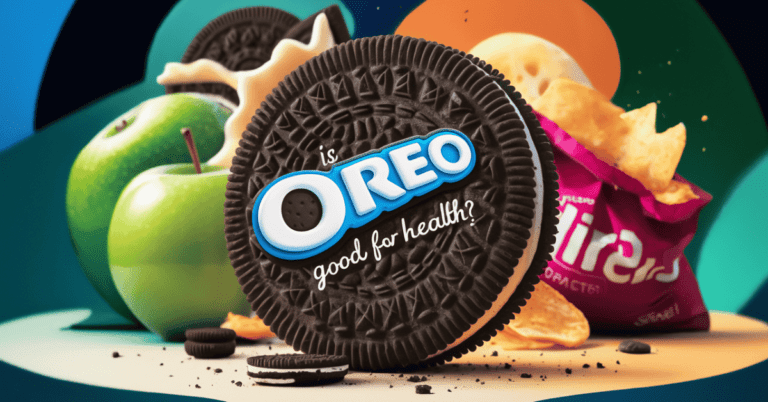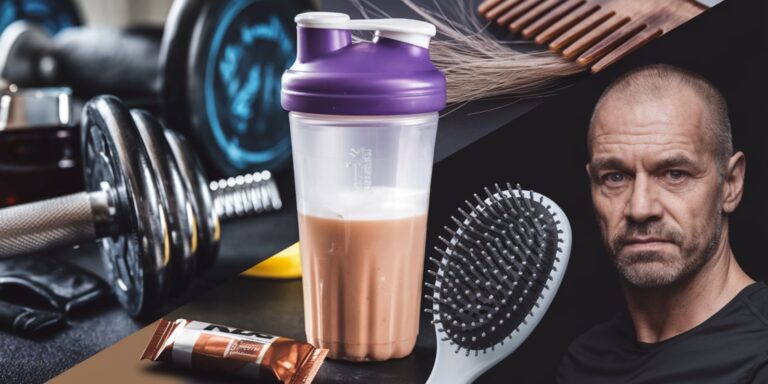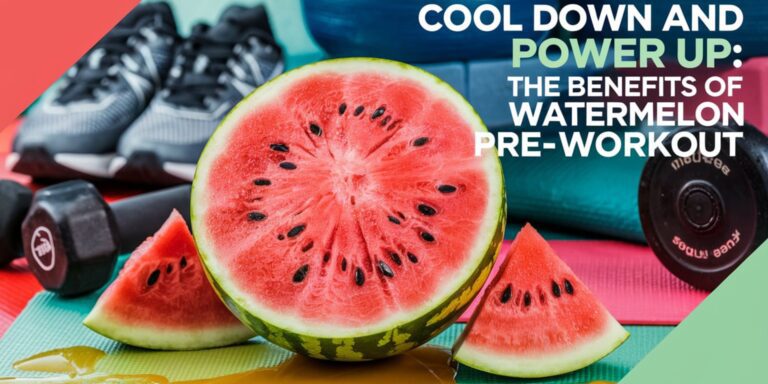Hydrate Naturally: The Power of Coconut Water Before a Gym Session
Staying hydrated during any kind of work out is one of the highest priorities. However, most usually fall back on a source of hydration from sugary sports drinks. An alternative does exist which is more organic and healthier: coconut water. Not only does coconut water offer a refreshing way of re-hydrating, but its nutrient profile recommends it for pre-workout consumption. Here, in this article, we will explore why coconut water is nature’s best pre-workout drink and why it’s best for you in your fitness regime.
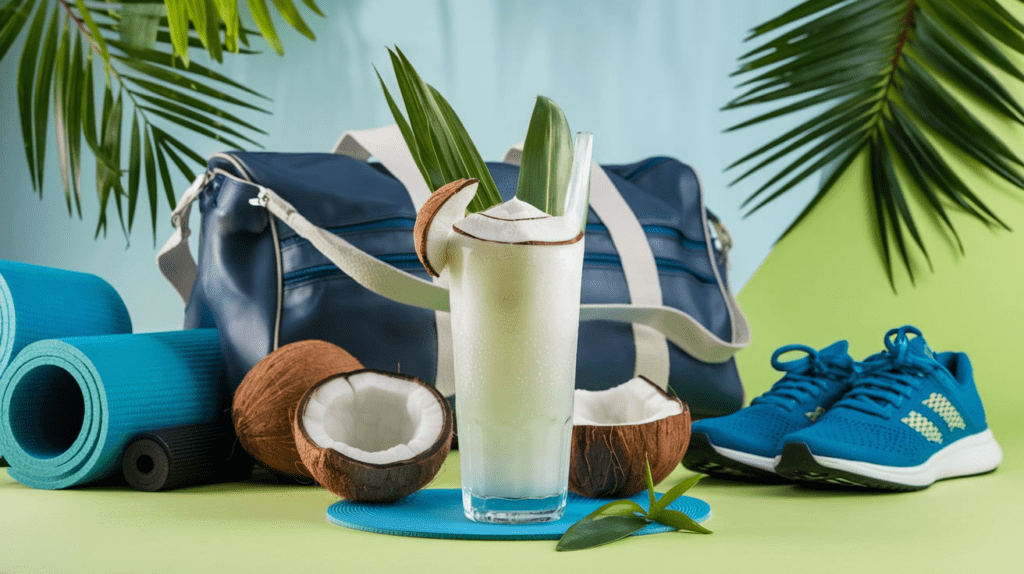

Introduction to Coconut Water
What is Coconut Water?
It is the watery liquid found inside the young, green coconut. Many people confuse it with coconut milk, which is prepared from the flesh of the coconut, but this water is much lighter and does not have many or any fats. It includes important electrolytes and sugars, justifying its use among athletes and nature lovers.
Fitness and the Popularity of Coconut Water
In the previous decade, coconut water has turned into a favorite among fitness enthusiasts and athletes alike, transforming the drink into a staple among runners, cyclists, and yoga practitioners. “Natural sports drink” with refresher’s best taste and built full of light nutrients.
Why Coconut Water is a Super Hydrator
Coconut water also contains potassium, magnesium in minute quantities, and sodium, three of the most important electrolytes that help maintain a balanced and hydrated body. It also contains high water content and natural sugars, all of which raise body energy; therefore, it is a very ideal pre-workout drink.
Main Nutritive Highlights of Coconut Water
Rich in Electrolytes
Coconut water has rich contents of essential electrolytes involved in proper fluid balance and muscle activity.
Sodium
Sodium helps regulate the amount of fluid within the body, a process that is accelerated during exercise through the perspiration process.
Potassium
One of the specialties of coconut water is its high potassium content, preventing muscle cramps and favoring muscle contraction; it is highly indicated for athletes.
Magnesium
Magnesium is implicated in energy production, muscle recovery, and some other related functions. It might also relax the muscles enough to prevent cramping during exercising.
Low in Calories and Natural Sugars
Unlike the rest of the commercial sports drinks laced with processed sugars, coconut water naturally contains sugars, which give that kick of energy without getting the slump. Besides, it’s relatively lower in calories, making it suitable for maintenance or weight loss.
Rich in Antioxidants
Antioxidants present in coconut water help neutralize free radicals produced during workout sessions. This means drinking coconut water before a workout may help reduce muscle damage and inflammation.
Contains Essential Amino Acids
It contains the building blocks of protein, or amino acids, for the repair and growth of muscles. Although it is not a source of high protein, coconut water contains a small amount of essential amino acids like arginine, which promotes blood flow.
Hydrate Endlessly for an Optimal Pre-Workout Performance.
The Importance of Hydrating Properly Before Exercise
Hydration is critical before any physical activity. When your body is adequately hydrated, your muscles can contract efficiently, your joints are well-lubricated, and your endurance levels remain high.
How Dehydration Affects Workout Performance
Ofcourse, dehydration can lead to tiredness, reduced coordination, and muscle cramps. Even slight dehydration can hobble your performance and depreciate your ability to sustain your intensity of workout.
Coconut Water vs. Regular Water for Hydration
While plain water is excellent for rehydration, coconut water provides additional electrolytes, which are vital in keeping the right fluid balance in the body, especially when one engages in more intense and longer exercise sessions.
Coconut Water vs. Commercial Sports Drinks
Less Added Sugars and Chemicals
Most commercial sports drinks rely on artificial color and flavor with an excessive amount of added sugar. Coconut water is a naturally superior rehydration beverage without all of the extra junk.
More Natural Electrolyte Balance
It provides a more natural electrolyte relationship compared to that of artificial flavors, making it much easier for your body to take in everything needed to keep early healthy.
Great for Low to Medium Intensity Workouts
So, during general fitness routines and moderate to light-intensity exercises, coconut water should suffice without overloading your system with excess calories or sugar.
Gentler on the Stomach
Unlike some sport drinks that can be too dense and cause bloating or an upset stomach, coconut water is easily digested and absorbed by the body, making it perfect for pre-workout hydration.
The role of electrolytes in pre-workout hydration
Sodium: Maintaining Fluid Balance
Sodium keeps the balance of fluids in your body so you don’t get dehydrated when you are losing a lot of sweat.
Potassium: No Muscle Cramps
Potassium contributes to muscle functions such as the prevention of muscle cramps from over-strain, which is quite common during exercise.
Magnesium: Boosts Energy Production
On a cellular level, magnesium is needed for energy production to feed your muscles and sustain endurance.
When and How to Take Coconut Water before Exercise
How Much Coconut Water to Drink Pre-Workout
You must take 8-12 oz of coconut water 30 minutes to an hour before other forms of energy food to allow the electrolytes time to absorb and give you a hydration jolt but not be too filling.
Optimizing the Effectiveness of Coconut Water
You can take your coconut water at least 30 minutes before workout for efficiency. By this time, consumption will rehydrate the body with the ability to increase endurance and eliminate dehydration through the training.
Coconut Water and Light Snacking Pre-Workout
By combining the coconut water with a light snack, like a banana or some nuts, this further boosts your energy levels and ensures that you are not only hydrated but also fueled for the workout.
Advantages of Coconut Water During Different Kinds of Workouts
Coconut Water for Endurance Training Long-distance running, cycling, and activities that require prolonged physical demands allow coconut water to maintain hydration over an extended period of time and eliminate fatigue.
Coconut Water for Weightlifting
Weightlifting, besides provoking minimal sweats as compared to cardio, however calls for the need to still keep the body hydrated—mainly for muscle performance and recovery. This keeps you hydrated and reduces skeletal muscle cramping during weightlifting.
Coconut Water for Yoga and Pilates
“It replenishes fluids lightly in your system during those low-key activities that call for some yoga or Pilates without leaving you feeling heavy or bloated.”.
Coconut Water for Post-Workout Recovery
Replacing Lost Electrolytes
After a workout, your body needs to refill the lost electrolytes from your sweat. Compared to most sports drinks, coconut water helps in restoring these vital nutrients in the body more naturally.
Muscle Soreness Reduction
The potassium and magnesium in coconut water can help relax muscles and reduce soreness to allow for their fast reconstitution after extraordinary workouts.
Speeding Up Hydration Post-Exercise
Since it is well-absorbed, coconut water reinstates the hydration level quickly, helping an individual recover faster after a workout.
Choosing the Right Coconut Water
Fresh vs. Packaged Coconut Water
Fresh coconut water is the purest product, but packaged versions are convenient. As for how to choose the best from packaged coconut water, the best must not contain any additives like sugars or preservatives.
What to Look for on Coconut Water Labels
Look for “100% pure coconut water” on the label; avoid brands containing added sugars, artificial flavors, or other ingredients that are not required.
Organic and additive-free choices
This organic coconut water is free from pesticides; most consider this the best and one that will ensure that one is ingesting possibly the purest type of hydration.
Common Myths About Coconut Water in Fitness
Myth 1: Coconut Water Replaces All Sports Drinks
While coconut water is excellent for hydration, it may not fully replace sports drinks for high-intensity athletes who need more concentrated electrolytes and carbohydrates.
Myth 2: Coconut Water is High in Sugar
Coconut water contains natural sugars, but they are much lower than the added sugars found in most sports drinks.
Myth 3: Coconut Water is Just a Fad
Coconut water has been a traditional source of hydration in tropical regions for centuries. Its current popularity in the fitness world is backed by science, not just trends.
The Environmental and Ethical Impact of Coconut Water
Sustainable Coconut Farming Practices
Look for brands that prioritize sustainable farming practices, which help protect the environment and local communities.
Ethical Brands to Consider
Some brands ensure fair wages and working conditions for coconut farmers. Choose these ethical options to support responsible farming practices.
The Carbon Footprint of Imported Coconut Water
Coconut water is often imported from tropical regions, which can contribute to a larger carbon footprint. Be mindful of this when choosing your brands.
Conclusion
Coconut water is a natural, refreshing, and nutrient-rich way to hydrate before your workouts. Packed with essential electrolytes, low in calories, and gentle on the stomach, it offers numerous benefits that make it an excellent alternative to commercial sports drinks. Whether you’re engaging in light yoga or an intense cardio session, coconut water can enhance your performance and keep you hydrated throughout.
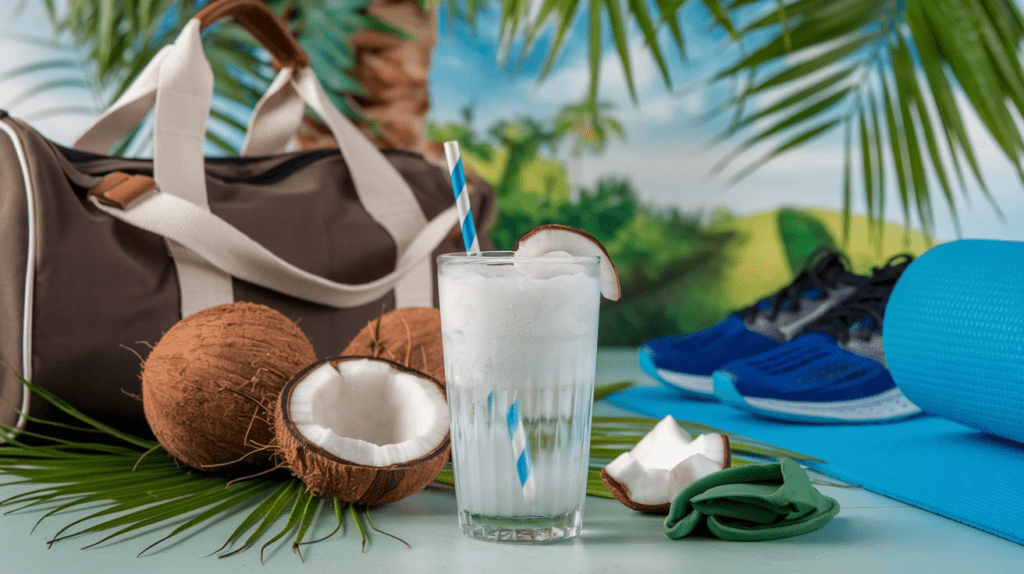

FAQs
Can I drink coconut water during my workout?
Yes, coconut water can be consumed during a workout, especially if you’re engaging in prolonged physical activity.
Is coconut water better than water for hydration?
For workouts where you lose a lot of sweat, coconut water may be better because it replaces lost electrolytes that plain water does not.
Are there any side effects of drinking coconut water before a workout?
For most people, coconut water is safe, but if consumed in excess, it can cause digestive upset. It’s best to stick to moderate amounts.
Can coconut water help with weight loss?
While coconut water isn’t a weight loss miracle, its low-calorie content and ability to hydrate without added sugars make it a good choice for those looking to manage their weight.
Should I avoid flavored coconut water?
It’s best to avoid flavored coconut water as it often contains added sugars and artificial ingredients. Stick to pure, unflavored coconut water for the healthiest option.


